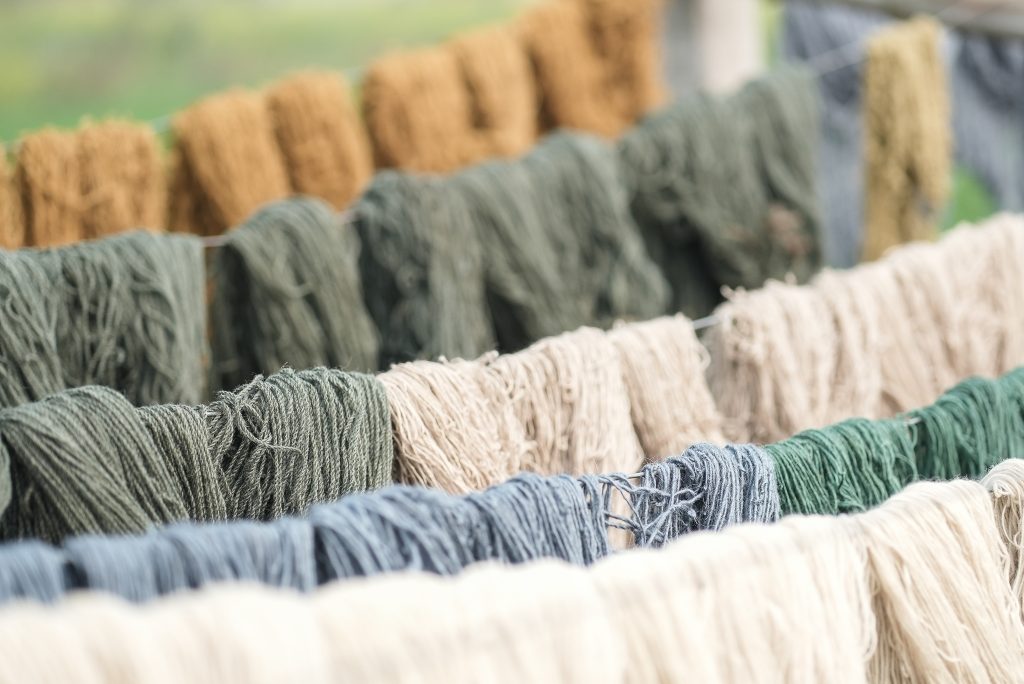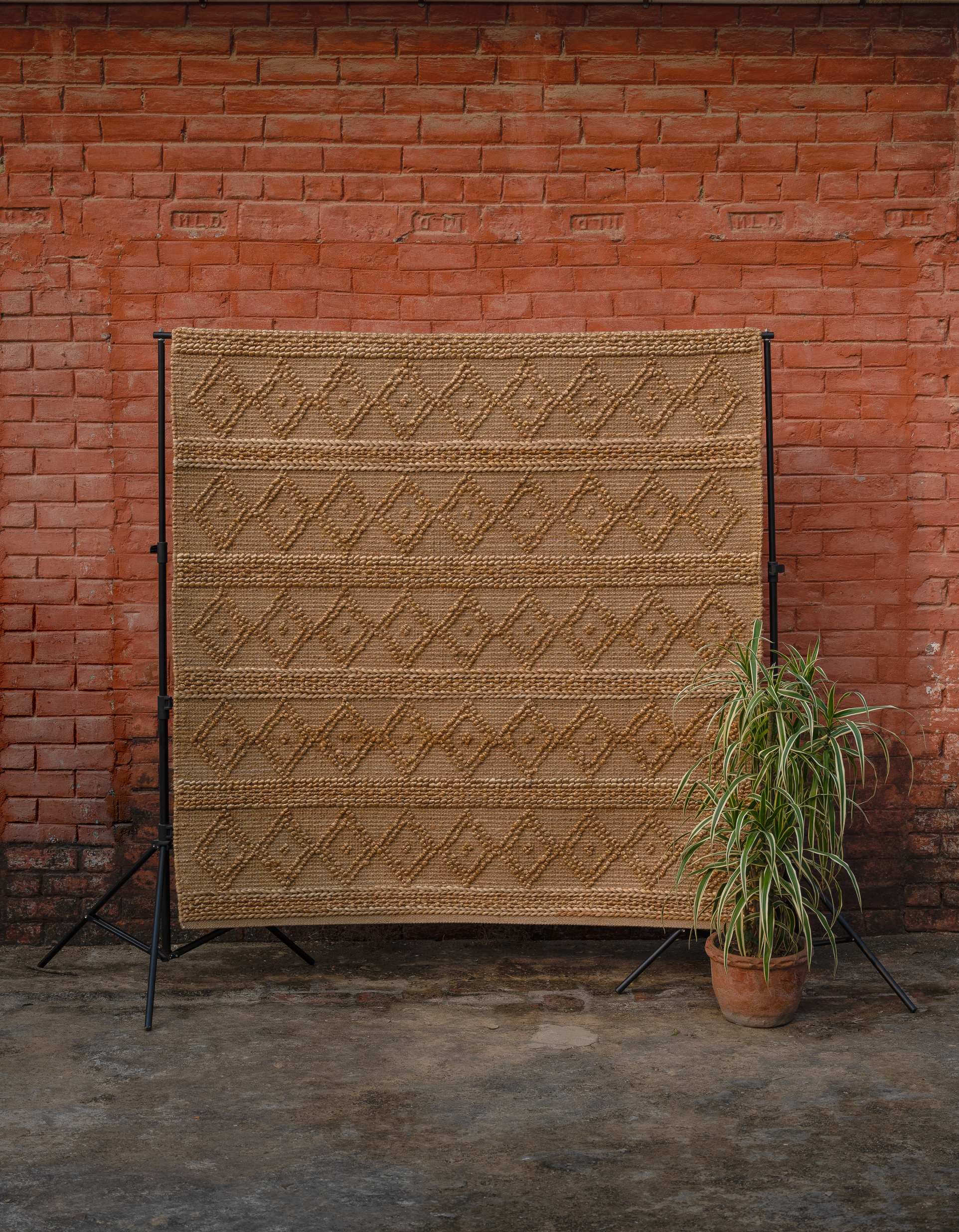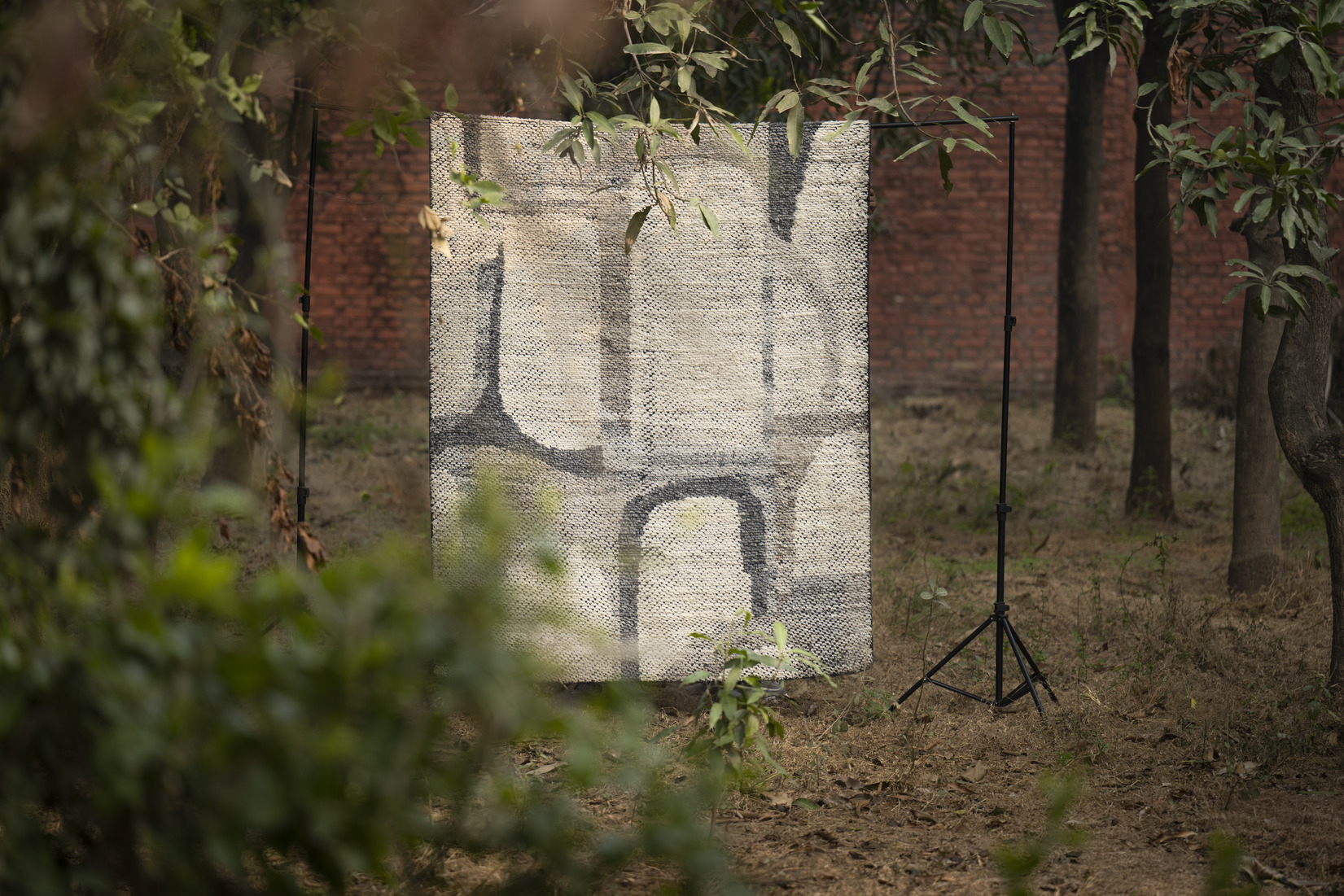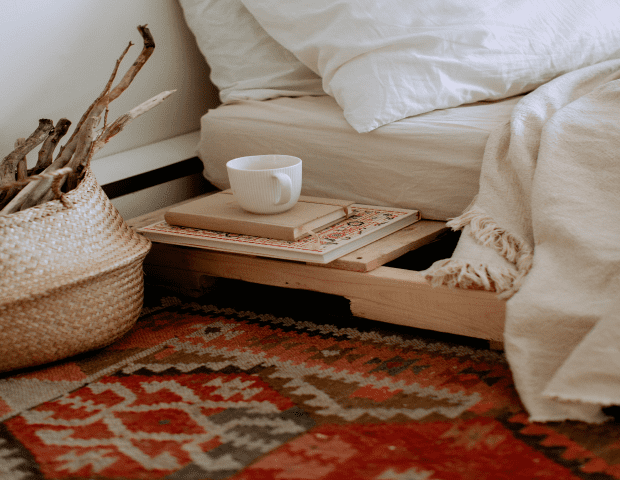
- October 22, 2023
Types of Rug Materials and How to Choose the ‘Right One’?
Picture this: a meticulously designed rug, beautifully crafted, that seems to drive you closer with its impeccable weave. As you approach, your fingers sink into its soft texture, confirming it’s exactly the touch of warmth and comfort you’ve been seeking.
From naturally sourced materials to rugs made from recycled materials, choosing the right rug material depends on the space, the foot traffic it will bear, and the design statement you need to make.
This blog explores types of rug materials and what factors contribute to choosing the right ones.
Your Go-to Guide to Rug Materials
Natural Fibers
Natural fibers for rugs cover a wide range of rugs and rug styles. These materials come from natural and renewable sources. There are soft materials like cotton and wool and more rigid plant materials like jute and sisal.
1. Wool
The go-to material for handmade rugs, Wool creates the most vibrant, durable, and affordable rugs. It is naturally stain-resistant and is ideal for sound absorption and insulation.
– Why do we love it?
- Robust and durable
- Broad range of colors, vibrant hues
- Naturally fire resistant
– Works best in:
- High-traffic areas
- Hotel rooms, corridors, lobbies, and lounges
2. Jute
This natural fiber is an eco-friendly, durable rug material that adds warmth and texture to every space. Jute rugs provide a textured and rustic look. They are also less soft underfoot than cotton rugs.
– Why do we love it?
- High durability (ability to withstand wear & tear)
- Sound insulation properties
- Versatile
- Eco-friendly
– Works best in:
- Lobby areas
- Living rooms, dining areas, and bedrooms
- Use as Tapestries
3. Silk
Silk is one of the most robust and durable natural fibers from silkworms. Silk rugs are soft and luxurious, featuring an exquisite natural sheen. They last centuries and are expensive, owing to the intensive and laborious process of creating silk yarn.
– Why do we love it?
- Extremely robust and durable
- Luxurious shine
- Vibrant hues, a broad range of colors
- Higher price point
– Works best in:
- Exclusive areas
- Presidential suites
- Executive rooms, premium rooms
4. Hemp
A natural fiber derived from the Cannabis sativa plant, Hemp has a unique rough texture that softens with use and carries an overall rustic and earthy feel. Hemp fibers can be dyed in various colors to create rugs of desired interior styles.
– Why do we love it?
- Durable, fibers are known for their strength
- Mold and mildew-resistant (ideal for humid climates)
- Hypoallergenic in most cases
– Works best in:
- Lobbies, entryways, hallways, and living rooms
- Use as tapestries
5. Cotton
Cotton is a versatile, durable, and affordable material used in various rug types. They come in various colors and patterns. People can use them in areas where comfort is the highest priority.
– Why do we love it?
- Soft and versatile
- Easy to clean and maintain
- Budget-friendly
- Lightweight
– Works best in:
- Low-traffic areas
- Bedrooms and Children’s room
Synthetic Fibers
Synthetic rug materials come from artificial fibers like Viscose (Bamboo silk), nylon, and polyester. Synthetic rugs are comparatively affordable, durable, easy to clean, and can mimic the properties of natural rug materials.
1. Bamboo Silk/ Viscose
Referred to as Art Silk, Banana Silk, Luxcelle, and Bemberg, Bamboo Silk rugs can emulate the appearance and characteristics of natural silk. It is vegan and renewable, making it easier to cultivate and grow. Since it is a rayon fiber, it does not tolerate humidity.
– Why do we love it?
- Soft and luxurious to the touch
- Light and easy to manage
- Broad range of colors and designs
- Stains and crushes easily
– Works best in:
- Low-traffic area
- Premium hotel rooms
- Accent areas
2. PET Yarns
PET (Polyethylene Terephthalate) Yarns, a form of polyester yarns, are produced by forming hair-thin threads out of discarded plastic bottles. PET yarn rugs are an innovative and sustainable method of reducing the impact of waste on the environment.
– Why do we love it?
- Water-resistant
- Durable, can withstand wear & tear
- Lightweight
- Sustainable
– Works best in:
- Outdoors
- Outdoor pool areas
- High-traffic areas
- Hallways, Lobby area, home offices
5 Points to Consider For the Right Rug Material
- Purpose – Deciding on the primary use of the rug helps determine what type of rug material to choose. The characteristic of the rug material helps to decide if the rug will be in a high-traffic area, in a premium room, or an outdoor space.
- Budget – Figuring out the budget for the rug narrows down the options for which rug material to choose. Rug materials like silk tend to fall in the higher price range, whereas cotton and other synthetic rugs are comparatively less expensive.
- Maintenance – The material choice will vary considering the ease, frequency, and amount of clean-up required for the rug. While some rugs are easier to care for, like cotton and synthetic rugs, other rugs, like silk, require more attention and gentle cleaning.
- Aesthetic – Optimizing the choice of rug material based on the interior decor or style can enhance the complete look of the space. While materials like jute give rustic vibes, cotton creates a comfortable aesthetic. Silk rugs, on the other hand, create a lavish feel in any space.
- Eco-friendly options – By choosing natural materials from renewable sources or PET yarns made from plastic waste, rugs can become a part of a more significant cause that reduces harm to the planet.
It’s Ultimately an Art of Selection
When selecting a rug or customizing it to fit your needs, making an informed decision becomes necessary. Since each material has a distinct characteristic defining its suitability, adaptability, and purpose, choosing the suitable rug material can enhance the aesthetic and functionality of any space.
Whatever your choice of rug, Yarns of the East commits to making it as desired. By choosing rugs that represent, you also choose a rug that delivers on the promise of sustainability.
Visit Yarns of the East to learn more about how Yote delivers its promises.
Ciao, Until next time…..
Stay In The Loop
Subscribe to our monthly newsletter and get inspired by the craftmanship and catch the latest trends in handmade rugs

Similar Stories

Handmade Rugs: More than just floor coverings
In this first edition of yote. stories, we’ll shed some light on how the use of rugs have evolved over time from being a precious item to now being a household utility that offers both functional and a decorative element.

Unraveling the Threads of Time: The Fascinating and Surprising History of Rugs
Dive into the fascinating history of rugs in our latest blog. Uncover the rich tapestry of rug origins and cultural significance.